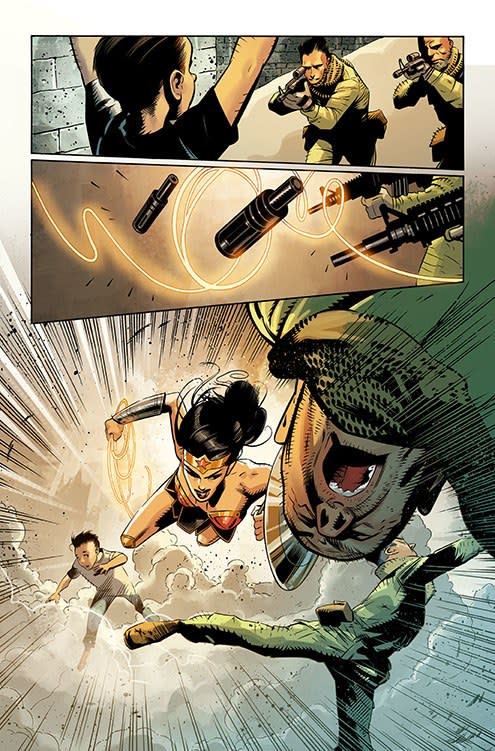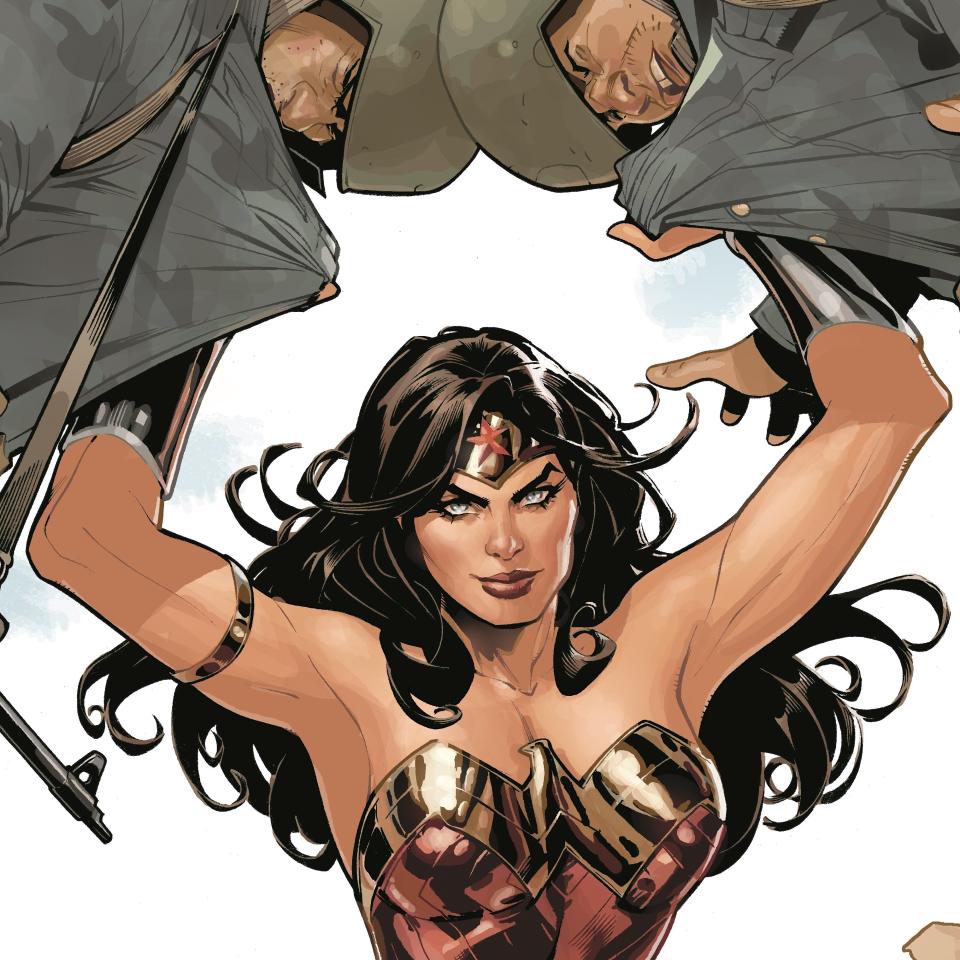A New Wonder Woman Wonders Whether War Is Ever Worth It
When it comes to iconic comics, few can compete with Wonder Woman. DC Comics’ warrior goddess holds a special place in popular culture; since her inception, Diana of Themyscira has become one of the most recognizable avatars of female power. Immortalized in films, TV shows, books, video games, and more, Wonder Woman’s story is familiar even to those who have never opened a graphic novel. It takes a deft hand to reinvent a beloved character, but from the moment G. Willow Wilson was asked to write her latest comic, The Just War, she understood that a shake-up was in order. “I knew immediately that I was going to have to really up my game and do a lot of thinking about how to do right by this iconic character with 75 years of history,” Wilson, who is the cocreator of Kamala Khan, aka Ms. Marvel, the Hugo Award–winning comic about a Muslim-American teenager turned superhero, and the author of novels like Alif the Unseen, told Vogue. “It’s a very different set of challenges from creating a new character, but one that I’m honored to take on.”
True to form, Wilson’s Wonder Woman manages to be both steeped in mythology and relevant to today: Her Diana finds herself in the middle of a very contemporary global conflict where, thanks to modern warfare, the once static line between good and evil is blurred (to make matters worse, her archnemesis Aries has—upon getting a crash course in 21st-century values—decided to rebrand himself as a hero). For Wilson, who started with the goal of developing a plot that would be accessible to new readers while satisfying the needs of die-hard fans, it was important to approach these larger-than-life problems with realism and subtlety. “The thing that’s always been interesting to me about this character is that she has a very strong sense of justice, but we are living in a world where there are challenges to what that means,” says Wilson. “We’re coming to a more nuanced understanding of what justice is, and how it might look different depending on your point of view, background, or specific challenges. I wanted to complicate the one-size-fits-all sense of justice that Wonder Woman [often] has.”

The newly reformed Aries provides one such complication. The god of war has long been an adversary for Diana and the Amazonians and his switch to the opposite side—which may or may not be temporary—offers up a host of problems. A hero is only as good as their opponent, and the evolution of Aries’s character serves to reset reader expectations. “We have to ask a lot of good questions; can people really change, can you trust an old enemy who wants suddenly to be a friend, [and] what does justice mean when it’s coming from a former enemy?” says Wilson. “Aries is one of those characters who is very different depending on whose hands he’s in.” Though he’s been depicted as both the classic mythological figure and a cynical, brooding spirit, Wilson’s version is uniquely—and frighteningly—human. “He’s the embodiment of one of the most horrifying aspects and constants in history,” she says, “War. The one thing we’ve never managed to get rid of.”
War is a narrative through line in Wonder Woman, what Wilson calls “a part of the character” and “in a [way] . . . her mission statement.” Though previous incarnations have seen Diana aligned with the victors during World Wars I and II, Wilson chose to focus on modern warfare and it’s lack of objective truth: A key scene where Diana defies U.S. troops to save a child dispels any ideas about clear-cut “good guys” within Wilson’s narrative. “When I was revisiting my favorite story arcs from previous creative teams, one of the things that I thought about a lot was that when this character was introduced, warfare was completely different,” she says. “For hundreds of years you had two armies of roughly equal size facing each other across a battlefield. Today it’s completely asymmetrical, it’s urban, with tremendous civilian casualties. It’s not as clear-cut . . . I wanted to address that.”
Even if philosophy, politics, and polemology aren’t your thing, The Just War has plenty to offer. Beautifully illustrated by Cary Nord and filled with action, at its core it’s classic Wonder Woman. “Steve is still in trouble and Diana has to save him, but we’ve really rearranged the pieces on the chessboard,” says Wilson. Though much has been said about female-centric stories like Wonder Woman bringing women into the world of comics, for Wilson the current surge in popularity isn’t a new development, it’s a return to the golden age. “Ironically we’re going back to an older model of what comic books are and who they’re geared to. What’s really interesting to me is that people who might not be familiar with the comics of the ’40s and ’50s think that it’s a new thing for women and girls to be reading comics when in fact it’s a really old one,” she says. “It’s the idea of comics being solely the purview of men that’s new.”
